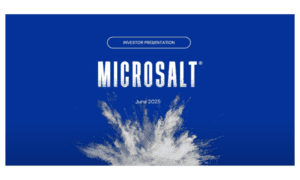Recent data indicates that most Americans consume too much salt, causing both short-term and long-term adverse effects. Learn what these effects are and how to stop hypertension before it stops you.
Sodium is vital for our bodies, and we should never attempt to completely eliminate it from our diet. It facilitates the conduction of nerve impulses and allows our muscles to contract and relax. It also maintains a balance between intracellular and extracellular water and electrolytes.
Low sodium (hyponatremia) is common in the elderly, especially those who have been hospitalized for prolonged durations. Symptoms of low-sodium include extreme fatigue and confusion. In severe cases of hyponatremia, a patient can develop seizures and even go into a coma. Some cases may end up in fatalities. That’s how important sodium is to the body.
However, Americans consume an average of 3,400mg of sodium per day, which is way higher than the recommended daily intake. The 2020-2025 Dietary Guidelines for Americans recommends a daily sodium limit for adults of 2,300mg. This is the equivalent of a level teaspoon of table salt or two of MicroSalt®.
This means that about one-in-three adults in the U.S. are at risk for developing the adverse effects associated with consuming too much sodium. These effects can be immediate (short-term) or develop after prolonged higher sodium intake (long-term).
The short-term effects of eating too much sodium
Most of the sodium that finds its way into our bodies comes from processed foods that we consume regularly. Canned and frozen meats, salted snacks, and salted nuts are good examples of foods that may contain high amounts of sodium. Consuming too much sodium may cause the following short term effects:
- Intense thirst
- Bloating
- Headaches
- An immediate spike in blood pressure
- Edema (swollen hands and feet)
- Confusion
These symptoms may appear immediately after one consumes a meal that is over salted. The symptoms are also likely to resolve after drinking several glasses of water. Consuming more sodium at this point will exacerbate the symptoms and may lead to serious complications. It is important to stay away from salted and processed foods after displaying the short-term symptoms of too much sodium in the body.
The long-term effects of eating too much sodium
As mentioned earlier, most Americans consume an average of 3,400mg of sodium each day. This is almost 50% more than the recommended daily intake. Consuming too much sodium for an extended duration will cause long-term adverse effects that can be fatal.
Too much sodium in the bloodstream will cause the body to hold onto water and not release it. The water that is supposed to dilute the sodium will cause an expansion in blood volume. This will result in an increase in blood pressure which becomes chronic hypertension.
The heart has to work harder to pump blood with hyperextension. This can easily lead to heart complications. The kidneys also have to work harder to eliminate toxins when the cells are trying to hold onto the water due to hypernatremia (excessive sodium). Several complications can arise from chronic hypertension that is not controlled.
Uncontrolled high blood pressure can lead to complications, including:
- Heart attack or stroke: High blood pressure causes the arteries to thicken and harden (atherosclerosis). This can completely block blood flow to the heart over time and cause a stroke.
- Aneurysm: Excessive pressure on blood vessels can cause their walls to weaken and bulge. This is referred to as an aneurysm. Aneurysms can rupture and cause a hemorrhagic stroke.
- Heart failure: The heart has to work harder to pump blood against the pressure gradient. This causes the heart muscles to thicken and increase in size (left ventricular hypertrophy). This can lead to heart failure.
- Kidney failure: High blood pressure will cause the vessels in your kidneys to harden and constrict. The kidneys will need to work harder to eliminate toxins. This can lead to kidney failure.
- Blindness: Hypertension can cause the blood vessels in your eyes to become narrow or even tear. This can lead to blindness.
- Dementia: Narrow or blocked arteries in the brain can cause confusion and a type of dementia (vascular dementia) over time. Strokes may also cause vascular dementia.
- Osteoporosis: High sodium levels will cause the body to excrete more calcium. Chronic low-calcium levels can trigger osteoporosis.
- Death: Chronic hypertension affects several vital organs. Kidney and heart failure are life-limiting conditions that may end up in death.
It is important to note that chronic hypertension can go undetected for several years. Early detection can help to prevent the short- and long-term effects of hypertension that is as a result of consuming too much sodium. It is advisable to have regular blood pressure check-ups to prevent complications that may arise.
How to reduce sodium consumption
With the short- and long-term risks discussed above, it is important to look at how one can reduce their daily sodium intake. Making practical steps each day will go a long way in preventing disease and improving one’s health.
- Choose low-sodium food options when shopping for commercially prepared foods
- Go for sodium-free food options when possible
- Substitute salt with spices when seasoning food
- Read the ingredient list diligently when purchasing processed foods
- Get used to preparing your own meals, which will allow you to limit the sodium
- Avoid using soft water when preparing meals
- Replace regular salt with MicroSalt®, which has two times the taste of salt and half the amount of sodium
Less sodium but great taste
As mentioned earlier, sodium serves an important role in our bodies. It helps nerves communicate and keeps muscles moving as they should. It also maintains a balance between intracellular and extracellular components.
We consume sodium in our meals as salt. Salt improves the taste of food and also helps in the preservation of processed foods. It is therefore important to strike a balance between too little and too much salt. MicroSalt® is that sweet spot.
MicroSalt® strikes a fine balance
MicroSalt® offers micro-sized salt-like particles that have double the flavor of salt but 50% less sodium. This is the perfect antidote for the sodium crisis in America – given that Americans are consuming 1.5 times more sodium than they should.
Our team strives to create a new food industry norm where good health doesn’t come second to great taste. MicroSalt® is the proud global winner of the P&G Alumni Network’s 2021 Star Entrepreneur Award. We’d love to help make your food products the best they can be.
Our food technology experts include a Chief Medical Officer on our board of advisors, so you can feel confident we can help you create food you can be proud of and that your customers will enjoy. Simply contact us via our message page, connect with one of our international offices, or call 1 877 825 0655 to learn more.




